News
[Source: Reports and reflections by Mario Moruma, Rebecca Vander Meulen and Jo Beale, collated by Sheenagh Burrell]
The work of adeptos meeting agricultural needs in the present situation caused by late rains: distributing and receiving fast growing cowpea seeds.
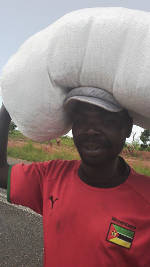
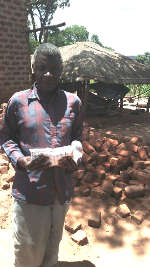
The Diocese of Niassa is doing an emergency distribution of food to 235 families in Mecanhelas who are in desperate situations. Nearly everyone is experiencing some level of hunger, but this work is focused on the few families in each community who are at risk of potentially even losing their lives to hunger. Community committees, made up of religious leaders from various faith backgrounds and also of traditional leaders, have identified the most vulnerable households.
Please pray for the distribution team, who is particularly anxious due to the high incidence of hunger-related crime and theft. Last week, people managed to create holes in the bottom of the train cars that were carrying grain to Malawi, stealing what came out of the holes. An armed police officer has been guarding the diocesan warehouse in Mecanhelas. Tomorrow the distribution will begin, accompanied by four armed police officers.
Things went smoothly on the first day of emergency distribution of food to 235 families in Mecanhelas who are in desperate situations. The needs are astounding and there is always more than can be done!
The Diocese of Niassa has distributed more than 3000 kg of fast-growing bean seeds to extremely vulnerable families in Nampula and Zambezia.
One person who benefited from seeds is Alberto Wahala, from Carrupeia. He is forty years old and lives with his wife, five children and four orphaned grandchildren (the children of his oldest daughter, who passed away). He planted a farm full of crops: beans, maize, sorghum, and peanuts. But the rains stopped not long after the seeds had germinated, and nearly everything died. He didn’t have any more seeds, nor money to buy them. He is grateful for the few seeds he was given—but knows that this year ahead will hard. An added challenge is that the shallow hand dug wells his family depends on, which are normally deepest at this time of year, are already dry.
Fatima Manuel, a 50-year-old widow, lives with her five grandchildren in Perequeijo. She also lost everything she planted when grasshoppers invaded her farm (just as the seedlings were sprouting). The grasshoppers “cleaned” her field, leaving nothing. She tried to work in other people’s farms in order to earn enough money to buy new bean seeds to plant, but didn’t find much work. She is grateful to have been given some bean seeds. She plans to help people whose situations are even more difficult than hers by sharing some of her harvest.
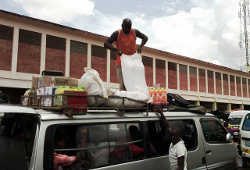
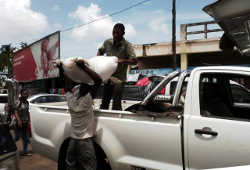
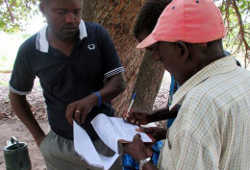
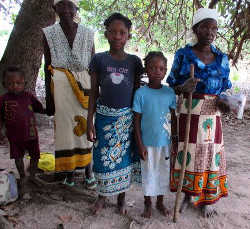
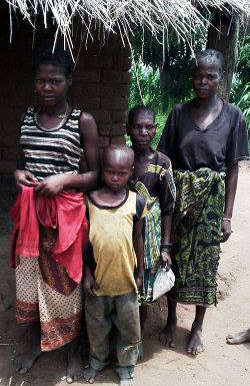
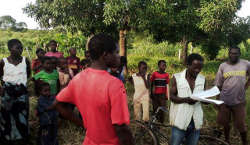
Jo Beale has written a blog post, reflecting on the experience of drought and the connection with global climate change.